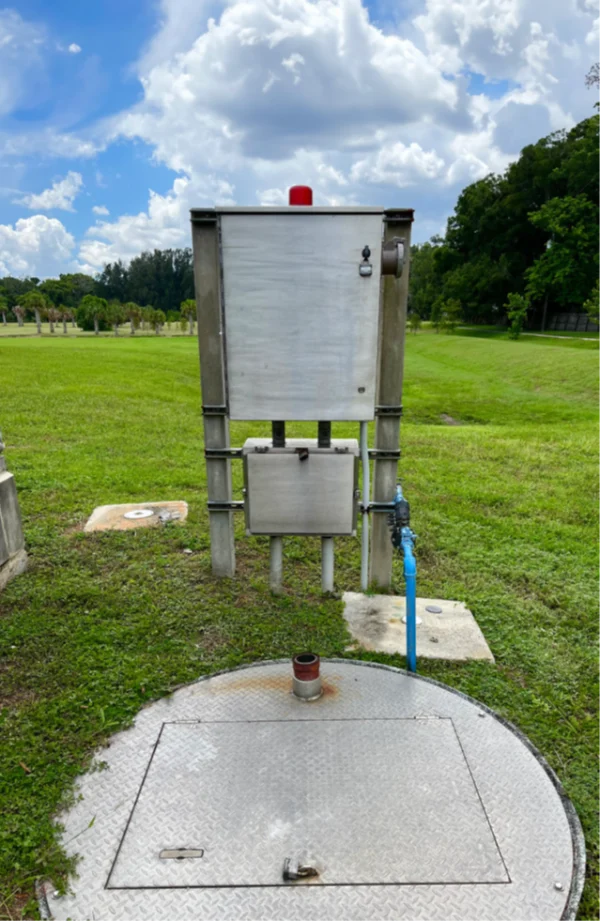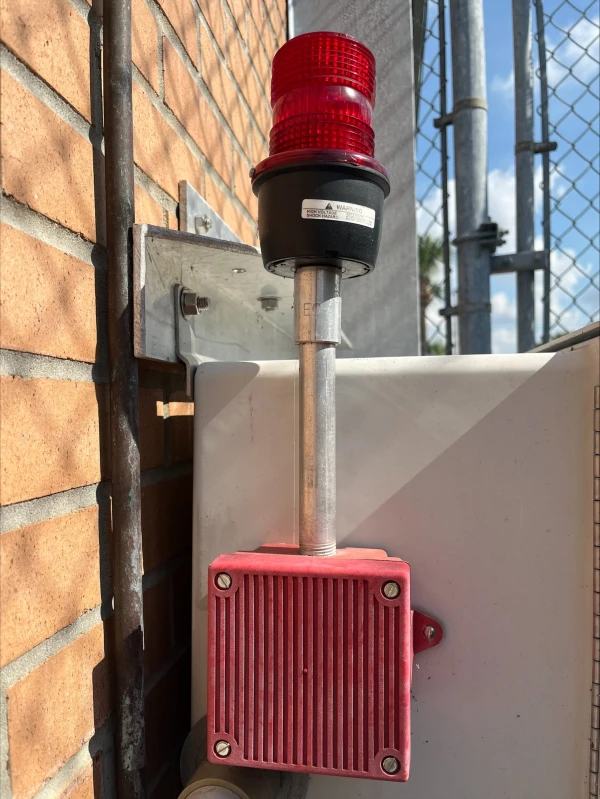Privately-Owned Collection & Transmission System Program (POCTS)
Hillsborough County Privately-Owned Collection & Transmission System Program (POCTS)
The purpose of the POCTS Program is to evaluate private lift stations and collection systems to ensure they are maintained properly to control excessive amounts of inflow and infiltration and to prevent clogging of the County’s sewer system due to excessive discharges of grease and other non-flushable materials.
What is a Lift Station?
A lift station is a structure designed to pump the wastewater (sewage) from your property or business and transport it to a private or municipal treatment system. Lift stations consist of a wet well, pumps and floats, discharge piping, an electrical control panel, pump switches, and high-level emergency alarms.

How does a lift station work?
The illustration above depicts a lift station wet well. It has several components:
- At least two submersible pumps to move the wastewater
- A set of floats to activate the pumps when the water gets to a certain height and to activate the alarm system
- A discharge pipe that goes from the pump to the valve box that leads to a connection to the sewer system
- A lid for easy access to the wet well and/or valves

Do your part to prevent overflows
- Clean the lift station as needed to prevent overflows
- Have a regular maintenance schedule
- Do not wait for something to break before you call someone to look at it
- Post a sign for an emergency contact where it can be seen by the public
- Be conscious of what goes down the drain. Grease and debris shorten the life for of the pumps that move the wastewater and can interrupt the floats from signaling the pumps to turn on.
Do not ignore the alarm!
The alarm system is in place to warn you of elevated water levels and/or a possible overflow. The alarm should be audible and visual. When water raises the float closest to the lid, it will signal this alarm system to turn on.

Inspections
Hillsborough County POCTS staff conduct inspections on privately-owned lift stations and collection systems to ensure compliance with the County Code of Ordinances, Section 120-200.
Some of the major requirements included in an inspection are:
- A minimum of two approved and operational pumps that alternate are in place
- All floats are operational
- Audible and visual alarm systems are operational
- The wet well and electrical panel are locked for safety
- The wet well is free of debris and grease
- The valve box and electrical panel are operating properly
- Emergency contact information is posted where it is visible to the public
Reporting a spill
All spills or sanitary sewer overflows (SSO) are required to be reported to all of the following agencies:
Environmental Protection Commission (EPC) within 24 hours of discovery.
EPC of Hillsborough County - (813) 627-2600
Hillsborough County Environmental Services at POCTS@hcfl.gov or (813) 744-5600
In addition, spills over 1,000 gallons or where public health or the environment may be endangered are required to be reported to the following entities:
Florida State Watch Office
1-800-320-0519
Florida Department of Environmental Protection (FDEP)
Public Notices of Pollution website: floridadep.gov/pollutionnotice

